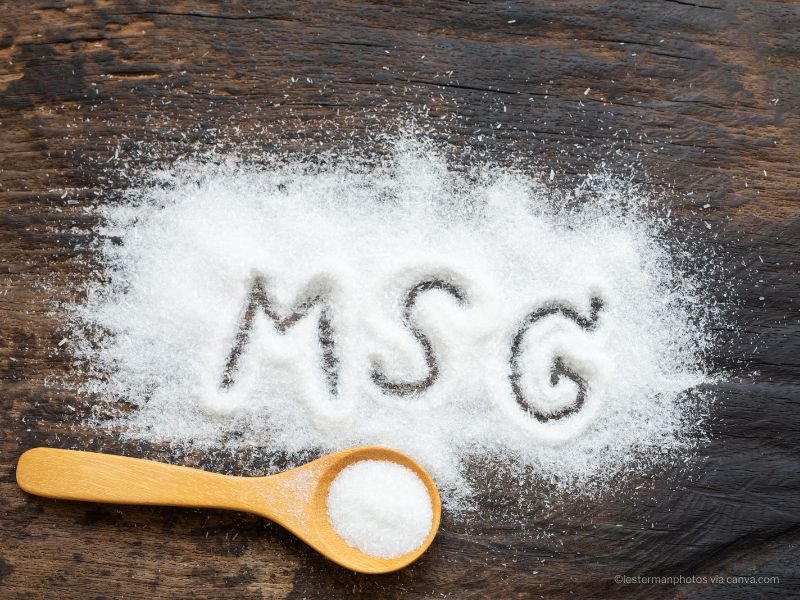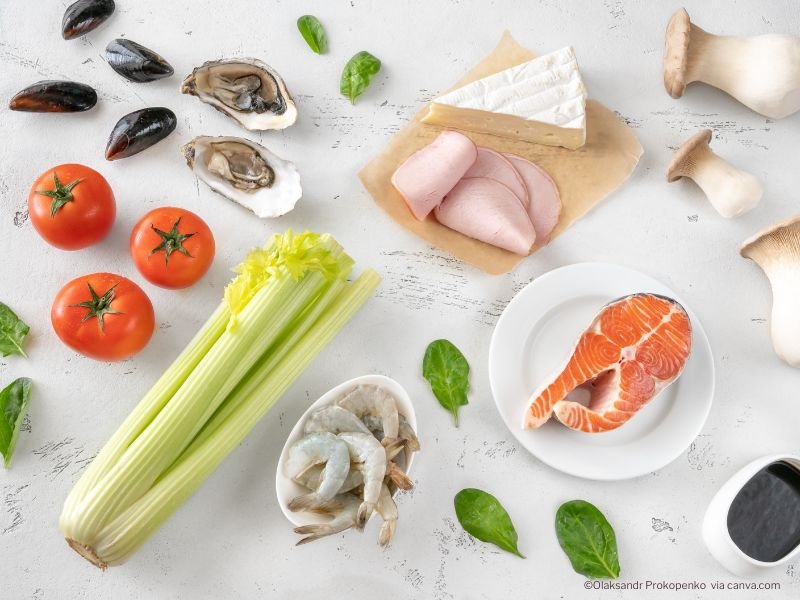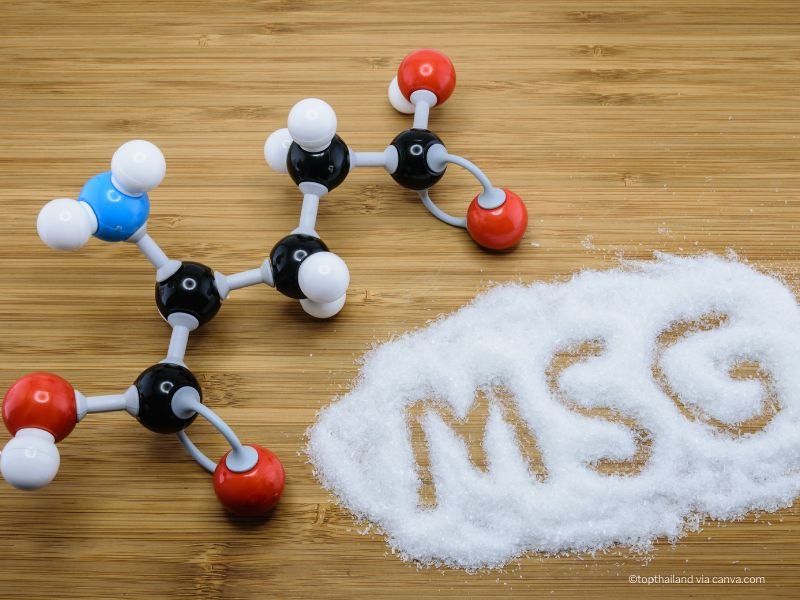
MSG Monsodium Glutamate explained: what it is and how to use it in cooking
Do you know that feeling of cooking a dish and it is ‘almost there but not quite’, like some kind of umami booster is missing but you don’t know how to add it? MSG might be what you are looking for.
When it comes to cooking Asian dishes, you will often find MSG on the ingredient list.
But what is MSG and what does it do? I’m here to help :)
MSG, short for “monosodium glutamate” is a flavour enhancer and a steeple ingredient especially in Asian cuisine. The powder is known for its ability to enhance the umami taste of food and give you that uniquely satisfying ‘yum’ feeling.
What is 'umami'?

As you most likely know, there are five basic tastes: sweet, sour, bitter, salty and umami. The word ‘umami’ is Japanese and translates to “delicious taste”. It is often described as a "savoury" or "meaty" taste and occurs naturally in a variety of foods including, meats, seafood, mushrooms, ripe tomatoes, cheese, and fermented products like soy sauce.
Umami is also the lastest basic taste to be discovered, only as recent as 1908, when a Japanese chemist, Kikunae Ikeda, was researching the taste of the traditional Japanese soup stock ‘dashi and found that the taste was due to the presence of glutamate. He then isolated and identified the chemical compound responsible for the taste, and named it as he experienced it: umami - delicious tasting.
We mostly associate umami with well-rounded and deep flavours that give you a rich and satisfying feeling.
Chemically speaking, the umami taste requires the presence of the amino acid ‘L-glutamate’ along with its salts (monosodium glutamate (MSG) and others).

Is MSG an artificial flavour?
Simply put: NO.
MSG is just a salt derived from the amino acid L-glutamic acid which is a naturally occurring umami compound.
The process of creating MSG involves fermenting starch, sugar beets, sugar cane or molasses to produce a substance called glutamic acid, which is then processed and crystallised to form MSG. So it can be considered as a naturally derived ingredient, although it has been processed and purified.
Furthermore, the glutamic acid, which is the main component of MSG, is a natural amino acid present in many foods, so it’s not considered as an artificial ingredient.
That being said, be mindful that some MSG products may have some additional ingredients, like maltodextrin, which is indeed artificial. Make sure to always to check the ingredient list of the MSG you are buying if you want to avoid any artificial additives.
What does MSG taste of?

If you are expecting some taste explosion when putting MSG in your mouth, I have bad news for you: the taste of MSG is not very prominent by itself and does not have a specific taste (it does not taste salty, sweet, sour or bitter). Some people may experience a slight "umami" taste when consuming MSG, however it's not a strong or distinctive taste.
Let me know in the comments below if you can taste MSG.
What are the benefits of using MSG?
Here’s why you should consider using MSG in your dishes:
- It will enhance the flavour of food: MSG can help to enhance the natural flavors of food, making it taste richer and more well-rounded. That is particularly true if you are cooking dishes that have a subtle or understated flavour, such as soups or stir-fries.
- Reducing the sodium content in your food: if you are trying to lower your salt intake e.g. for health reasons, MSG can be used to reduce the amount of salt needed in a dish, as it will add that savoury, well-rounded taste without adding sodium.
- Improving the taste of lower quality ingredients: if you are on a budget or buy e.g. canned/frozen food for convenience, MSG can help you improve their taste by adding that extra pinch of ‘yummy’

Controversial: Is MSG really bad for you?
In the 1960s, MSG started to be vilified as the cause of ‘Chinese Restaurant Syndrome’. People claimed the consumption of MSG to be harmful and associated symptoms such as headaches or allergic reactions to it.
These myths have been widely debunked and the majority of scientific research has found that MSG is safe to consume in moderate amounts.
The majority of scientific research suggests that MSG is safe to consume in moderate amounts. The World Health Organization (WHO) and the Food and Agriculture Organization (FAO) have classified MSG as a safe food ingredient. The U.S. Food and Drug Administration (FDA) also recognises MSG as a "generally recognized as safe" (GRAS) ingredient.
How to substitute MSG?
There are several ways to substitute MSG in cooking and seasoning, depending on what you're trying to achieve. Some possible options include:
- Umami-rich foods: Foods that are naturally high in umami, such as mushrooms, tomatoes, soy sauce, and fish sauce, can be used to add a savoury flavour to dishes without using MSG.
- Herbs and spices: Herbs and spices such as garlic, onion, and black pepper can be used to add depth of flavour to dishes.
- Yeast extract: powdered nutritional yeast as well as yeast extract like Marmite or Vegemite, are a good source of natural glutamates
- Fermented foods: Miso, tempeh, kimchi and Sauerkraut can also be used to add a savoury flavour to dishes without using MSG.
- Other umami boosters: Parmesan cheese, anchovies, and Worcestershire sauce are also known for their umami flavour.
It's worth experimenting with different combinations of these ingredients to find the right balance of flavors for your dishes. Additionally, you could also make your own seasoning blends at home using herbs and spices.

Do you use MSG at all? Please comment below why or why not. If this article was helpful for you, please share it with your friends, to help spread the word.
xoxo Rena
